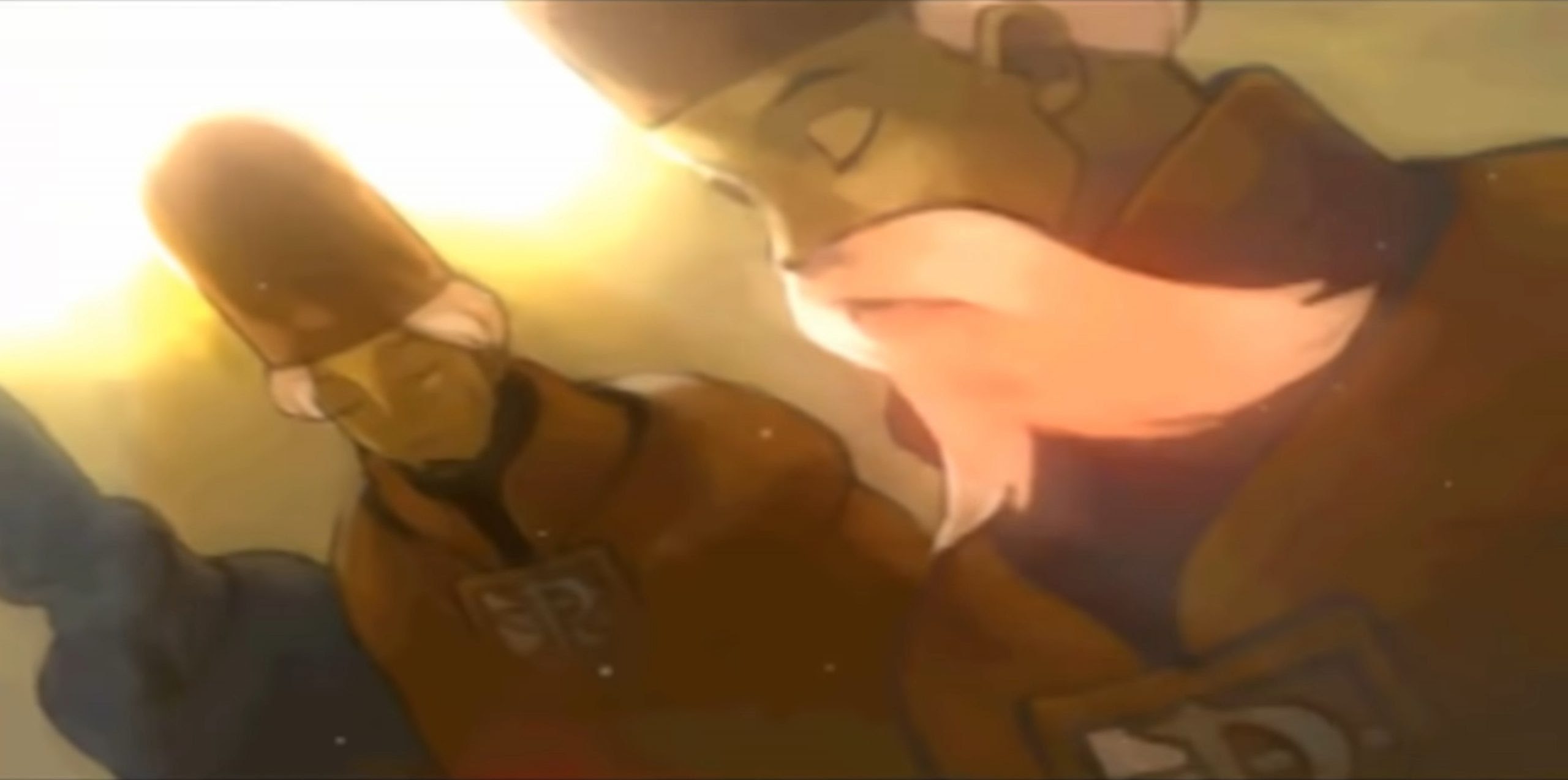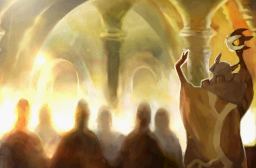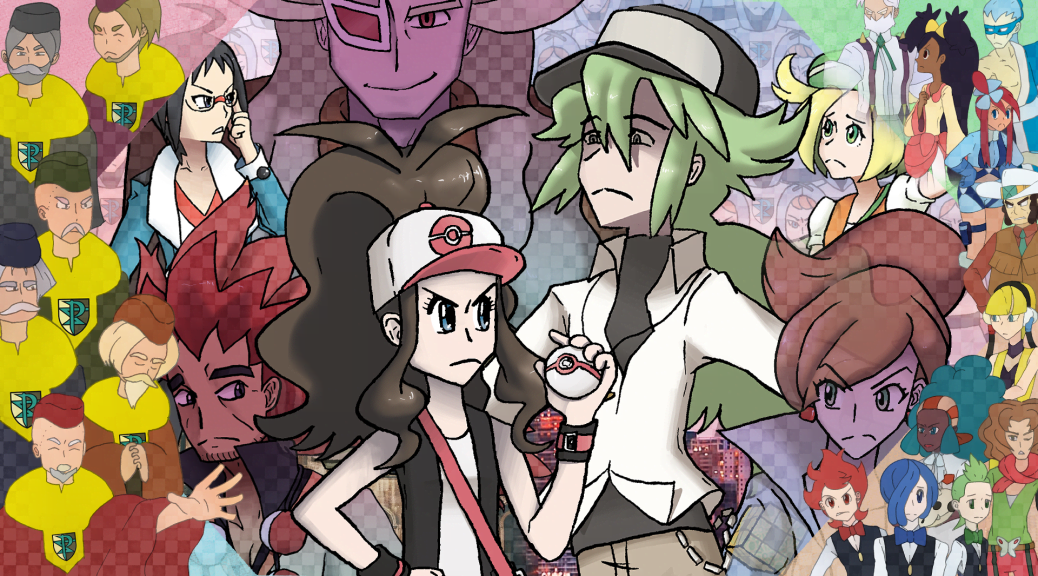Part III: The Cast of Unova
Part III of our tribute to Pokémon Black and White focuses on each of the games’ many characters.

Part III: The Cast of Unova
Hilda and Hilbert | Juniper | Bianca | Cheren | The Gym Leaders | The Elite Four | Alder
Team Plasma Grunts | Concordia and Anthea | The Seven Sages | The Shadow Triad | Ghetsis | N
The Seven Sages
Rood, Bronius, Giallo, Ryoku, Gorm, and Zinzolin—six of the Seven Sages of Team Plasma. Ghetsis, the seventh Sage, gathered them from across the world, as evidenced by their namesakes:each is named after a different color, and each language their names come from is different as well, coming from Dutch, English, Italian, Japanese, Gaelic, and French, respectively. The few names that differ significantly between English and Japanese—Bronius as Sumra, Gorm as Azula, and Zinzolin as Vio—still carry the pattern of being from a different languages. Sumra is Arabic, Azula is from the Spanish azul, and Vio is again from French, not English.1 In this way, Ghetsis has found sages throughout the world, and none are from an English-speaking nation like Unova, based on New York, is assumed to be, further pushing their diversity—and Ghetsis’s reach. This is lost in the English translations of Black and White, as the Arabic Sumra is renamed to the English-inspired Bronius, but the different languages—or nationalities—are represented all the same. Despite Team Plasma’s goal to separate people and Pokémon, Ghetsis’s ambitions have taken him the world over, unifying different kinds of people for his objectives.
You cross paths with the sages throughout your adventure, as do the Gym Leaders who are always ready to stand against them. They don’t challenge you to battle, which is in-line with their beliefs of Pokémon liberation. It also showcases their role as leaders by commanding grunts to do their “heavy lifting,” all while ensuring the player isn’t overwhelmed with too many boss-like encounters and major characters. Gorm makes it clear in Pinwheel Forest that the sages “have ordered their compatriots to take Pokémon with full force” despite the lack of action the sages themselves take. They lead, but not by example. According to Giallo, “Ghetsis called us [the sages] the chosen ones. He chose us and gathered us here so we can change the world!” But Ghetsis also chose N for a very specific duty, and he turned out to be nothing but a puppet to him. Likewise, the sages end up nothing more than empty figureheads, symbols to represent Team Plasma’s power and outreach, while issuing orders to the team grunts while Ghetsis is away.
Before that realization, however, the sages do threaten to battle you once it’s absolutely necessary. But even then, the player still doesn’t face off against them. When you consider just how many boss fights Black and White contain—including all the Gym Leaders, and numerous battles with N, Cheren, and Bianca—it makes sense from a gameplay standpoint that the sages would not challenge you along your adventure. There are more than enough battles to break up story-heavy segments of the games, meaning the sages may serve their narrative purpose peacefully. But more than that, it displays an interesting narrative choice in a series that would otherwise always have leaders in possession of Pokémon.
By not challenging the player throughout their adventure, the sages are implicitly made out to be frighteningly powerful. Past villainous teams’ big bad bosses challenge you periodically—and your win count against them grows rapidly, lessening their sense of threat. But Team Plasma’s sages never battle you, instilling a sense that they are in fact too powerful to even fight. When the Gym Leaders take their stand against them in N’s Castle, it is by necessity—you never would have made it through that gauntlet otherwise.
As such, the sages can safely lead the grunts not by example, but by virtue of their leadership abilities. Because Black and White emphasize characters having hobbies and occupations besides or in addition to being a Trainer, it makes sense that the two largest and most notable groups of the game showcase this. The Gym Leaders all have their own jobs, while the sages are pure leaders in their organization. By having the “admins” of Team Plasma exhibit strong leadership without the use of battle, Black and White gain another example of how traditional “strength” isn’t always everything, and it’s more important to know what your version of “strength” is good for.
Another way the sages are given ethos as leaders is through frequently quoting ancient Chinese philosophers, adding to their wise visage. The choice to have these men from various places in the world all reference philosophers from the same country, however, stems from its connection to yin and yang, a Taoist concept. This is also where the group receives their name: the Seven Sages of the Bamboo Grove, an ancient group of Taoist scholars and poets. While the sages sometimes reference Confucius and other Confucian philosophers, they do quote Taoist work as well, such as the Tao Te Ching and the Zhuangzi. They also reference the Huainanzi, which utilizes both Taoist and Confucian notions. This serves to not only validate the Confucian references, but to add to the theme of unity—in this case, the synthesis of different philosophies.

After the player has defeated N and and Ghetsis, they return home and meet Looker, a member of the International Police who has arrived to investigate Team Plasma. He’s a bit late to the party, but his presence does drive home how much of a threat Team Plasma is not just to Unova but the entire world. The Seven Sages—“Ghetsis notwithstanding,” as Looker says—are still out and about, and the player is tasked with hunting them down. On a gameplay level, this gives players a sense of intentionality as they retrace their steps throughout Unova, discovering what has opened up in the post-game along the way. Narratively, players will get to learn more about the elusive sages and just how deep Team Plasma’s split runs.
Deep underneath the Relic Castle, Ryoku muses that he hoped to catch the godlike Volcarona to give to Ghetsis. “I guess I don’t mind, even if we were being used,” he says, complicit in Ghetsis’s scheming, “but the dream is over.” Comparatively, Bronius in Chargestone Cave admits to his wrongdoings: “The Pokémon of our Team Plasma are also fighting for their Trainers. It was so obvious that I overlooked it… Thank you for reminding me of that.” He even emphasizes his dedication to the “good” Team Plasma cause when Looker apprehends him and demands more information about the organization. “Those who left Team Plasma and are behaving with respect and understanding toward Pokémon… Them, please forgive! However, those who won’t interact with Pokémon in a kind and honest way… Even I will never forgive them!”
On Route 18 players can encounter Rood. He describes N as “kind and excellent,” even if “his ability to understand the hearts and feelings of people is not developed enough. But… Even that was part of the perfection of Ghetsis’s plan.” Rood understands Ghetsis aimed to manipulate N in his entirety for the sake of his schemes, and Rood does not approve of it in the slightest. “When it comes to Ghetsis, I cannot separate the truths from the lies. … Someday, if my lord N develops the ability to understand the feelings of people as well as Pokémon, I would like us to gather again,” he says, solidifying his support of N over Ghetsis. “More than anything,” he adds, “I want to see N confront Ghetsis.”
But people don’t always remain the same. When players first encounter Zinzolin in the Cold Storage, his words are of protection and kindness: “Pokémon are our king’s friends. While we’re taking care of them, we can’t let any harm come to them here.” At the time, Zinzolin was considerate of N’s wishes—but something changed. Perhaps it was when Ghetsis saved him from Clay in Driftveil City after his arrest, but Zinzolin became more approving of Ghetsis over time, which can be seen after Ghetsis’s defeat. Zinzolin, despite his hatred of the cold, returns to the Cold Storage. There, he explains his reasoning to you:
“…Breathing. Having a heart that beats. That is simple existence and nothing more for a living being. That may be the definition of living, but I don’t think that defines life. The experiences of joy and suffering are a vital part of being alive. Ghetsis gave me the sensation of being truly alive… What did he mean to accomplish? That isn’t what’s important. Right now, I’m shivering. I’m suffering, but I’m alive.”
Unlike Cheren, who was positively influenced by Alder and determined that to “feel truly alive,” he should use his strength to help others in their time of need, Zinzolin was negatively influenced by Ghetsis. Instead of following his original creed to help Pokémon in need as N wished, he now prioritizes standing with those who already have power so long as it can give him a sense of thrill.
But for Ghetsis to reach the level of power he desired, he needed to prepare. As each remaining sage is found, they bestow upon the player a different TM. But they all have something in common: they’re TMs for “set-up” moves. These attacks do no damage but instead increase the user’s stats, allowing them to “set up” a particular strategy. The sages did indeed help set up Ghetsis’s schemes, but there’s more to this metaphor. As Ghetsis made clear in N’s Castle, his aim was to use Pokémon to control both other Pokémon and people. Ryoku and Rood confirm that these aren’t their own TMs—they were given to them by Ghetsis. Just like you would give TMs to Pokémon—Pokémon that Ghetsis thinks of only as tools—the earliest people to fall victim Ghetsis’s control were his very own sages.
You hardly need any direct confirmation to believe that Ghetsis continues to plot something from the shadows. With each of Looker’s “Ghetsis notwithstanding’s” comes the surging wave of dread that Ghetsis is indeed out there, honing his claws, readying another scheme. And while there are some who find Ghetsis deplorable, there are also those who would return to his side in an instant. As Bronius points out in Chargestone Cave, Pokémon fight for their Trainers even when they’re hurt, and they fought for all members of Team Plasma—which leads to the implication that they’ll fight for their Trainers even if they’re on the side of “evil.” In the same way, sages such as Ryoku and Zinzolin don’t care if they were being used by Ghetsis—they want to serve him, and they would do so again if given the opportunity.
Team Plasma is a massive organization, even if the player doesn’t get to see the full reach of its members. With so many grunts to command and plans to be enacted, there must be leaders to direct the masses. The Seven Sages of Team Plasma do what they must: from leading to obstructing, they are the glue holding Team Plasma together. But in the end, glue does nothing without a craftsman to apply it, and Team Plasma’s glue was chosen and applied directly by Ghetsis.
